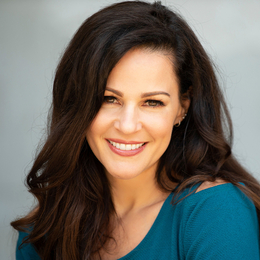Knowledge Base > Julieanna Hever - Ask a Dietitian

Julieanna Hever - Ask a Dietitian
This event was on
Thursday, December 14, 2017 at 11:00 am Pacific, 2:00 pm Eastern
Join Plant-Based Dietitian Julieanna Hever for this deep-dive on your questions and concerns about nutrition! Read More.
Question:
For someone with a family history of Heart Disease, besides being plant-based, what is the one thing you'd recommend?
— Patrick Britton
Answer:
Okay, so plant-based of course exercise is really important for heart disease history for everyone these these recommendations are that's what's so cool about a whole food plant-based diet and an exercise that these are across the board helpful for everything everything we know of it seems to be that the same answer and it sounds you know, it's like a one-trick pony but it really is so exercise for sure and again going back to making sure you're eating lots of leafy greens for the you know, the the compounds that help with arterial function. These have these things like L-Arginine and all these things that really help promote endothelial health. So lots of leafy greens beats with also have high levels of nitrates and stuff like that that will help improve cardiovascular function and just fiber which is you can't eliminate when you eat whole plants, you know, you're getting much much more fiber then on the standard American diet or the paleo diet or any of those other diet and so Lots of fiber like I said before the flax seeds have been shown to be helpful nuts and seeds have been shown to be helpful and eliminating any sources of saturated fat. So the only source of saturated fat on a whole food plant-based diet or the biggest source. I should say a saturated fat on a plant-based diet is coconut and palm oil like the tropical oils and the tropical food. So if you're eating a lot of coconut or eating coconut oil thinking it's healthy, it's not it's still high in saturated fat. It's not much better than butter and you should be wary of that. So I recommend not using any of those products and just be you know, I've had clients it was interesting. I had a client that's actually changed. I had to change the way I say this because of one client in particular who had like their cluster wasn't going down and they weren't eating coconut oil. They weren't eating. Any obvious sources of saturated fat, but if you look at where you get it on a plant-based diet you get a lot of it from nuts and seeds and but nothing seeds also have a lot of other healthy fats in them. So unless you're eating so these it turn out my client was eating tons and tons of nuts and seeds like I don't know. Okay, at least a cup of cup, maybe two cups a day and we realize that that's still a significant source of saturated fat and when you're eating if you're replacing other calories with nuts and seeds, you know, you're you're the ratio of carbohydrate protein in fat changes. So be wary of that too. You do want to have some but really one or two ounces is not that much. So just that's where you should focus on getting your fats from and and just lots of fiber fiber fiber fiber.